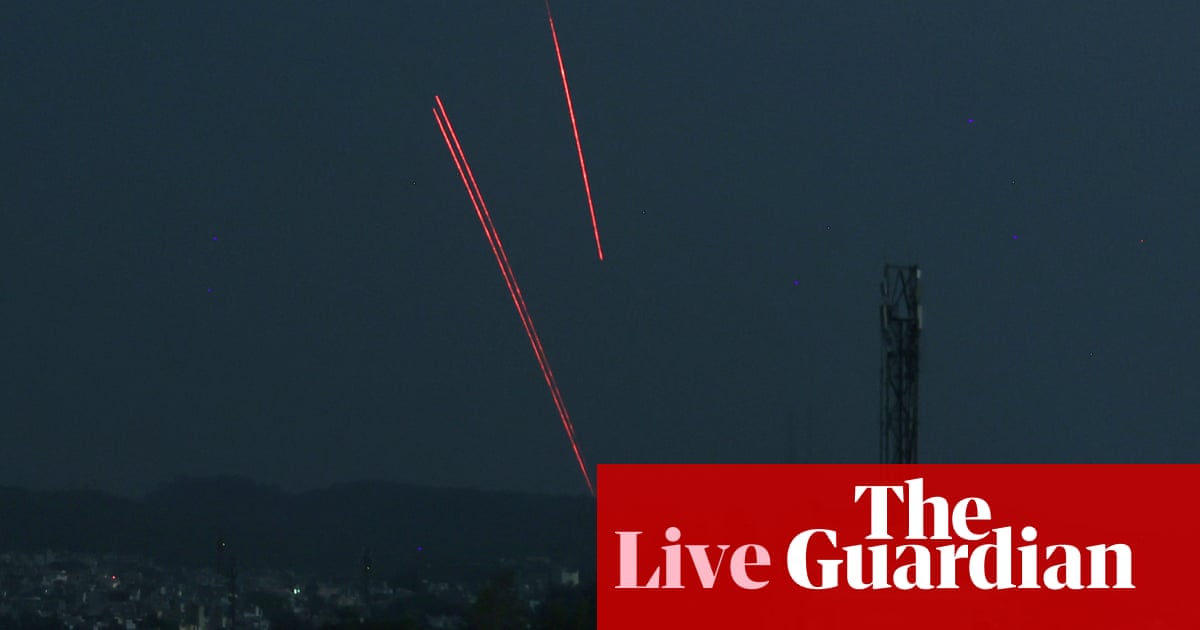The tectonic plates are shifting in German politics. A momentous past week has plunged the country into uncertainty – and not just about the outcome of the snap general election on 23 February. The mainstream parties are at each other’s throats, while the far-right Alternative für Deutschland (AfD) is jubilant.
The firewall (“Brandmauer”) against the extreme right, which has held since the end of the second world war, is showing big cracks. Europe’s most powerful country may be entering a phase of democratic instability.
All of this is the result of a spectacular miscalculation by the opposition leader, Friedrich Merz, leader of the centre-right Christian Democrats (CDU) and frontrunner to become Germany’s next chancellor.
Seeking to take a firm stance on immigration, after a knife attack by an Afghan asylum seeker that killed two people, including a toddler, Merz proposed a series of measures to tighten Germany’s borders, empowering the federal police and fast-tracking deportations. Polls show high support, including among Social Democrat (SPD), Green and Liberal voters, for restricting immigration; while a series of violent assaults, the deadliest on a Christmas market in December, killing six and injuring hundreds, has rattled the country. Merz, it seemed, had found an issue that gave his campaign traction.
But then – perhaps carried away by positive feedback – he decided to push two motions through the Bundestag. Merz claimed that he would not actively seek the votes of the AfD, but nor would he shy away from a majority with their support. At the same time, he added strong language against the AfD into the drafts, seemingly to make the motions unpalatable for them. Obviously, the idea was to increase pressure on the SPD and the Greens to support his proposals.
The gamble did not work out.
The AfD leadership realising that Merz had handed it an opportunity to split the political centre, sided with the CDU. Their votes helped Merz’s first motion, last Wednesday, to secure a narrow parliamentary majority.
Uproar ensued and 48 hours later, the second motion, on Friday, failed to pass, after a rebellion from within Merz’s ranks and a rare intervention by the former chancellor and CDU leader, Angela Merkel. To add insult to injury, the AfD co-leader Alice Weidel humiliated Merz publicly, deriding him as a weak figure who had just been undermined by his own party.
The episode was an unmitigated disaster: Merz has emboldened the AfD and damaged his own credibility. Moreover, he shattered a taboo central to postwar German political culture by breaking the norm of non-cooperation with the extreme right in any capacity. It is hard to overstate this moment’s significance.
It is a poor excuse that none of it was Merz’s intention. By failing to shun the votes of a party suspected of being an extremist organisation by German intelligence agencies to get his immigration proposals adopted, Merz reneged on a vow of non-cooperation. In November, he had publicly declared the CDU would never vote with the AfD, nor even accept “coincidental majorities” with them.
Merz’s attempt to pressure the Social Democrats and the Greens backfired. He has also handed their leaders, Olaf Scholz and Robert Habeck, a mobilising issue for their flailing campaigns: resisting the Christian Democrats’ normalisation of the far right.
But how did we get here? Merz is an old-fashioned Christian Democrat – pro-market, pro-Nato, pro-European. He is not a populist, nor is he a nationalist or a bigot. And yet, in a failed attempt to blackmail the centre-left competition and outsmart the AfD, he has made the campaign about his capacity for leadership and trustworthiness. What is his promise that he will never be elected chancellor with the votes of the AfD worth now?
It is crucial to understand that the CDU and its Bavarian sister party, the Christian Social Union (CSU), are not just typical conservative or centre-right parties like others in western democracies.
The German Christian Democrats rose from the ashes of their failed Weimar predecessors, the bourgeois-nationalist parties that underestimated or even supported the Nazis. Konrad Adenauer, first leader of the CDU and first longtime chancellor of the Bundesrepublik, was deeply conservative but an anti-fascist – and steered the right away from its anti-democratic leanings. True, he also integrated many old Nazis into his party, but that followed his instincts that former fellow travellers could be re-educated and re-directed. Adenauer would never have thought about forming a majority with anti-democratic forces in parliament.

The CDU, therefore, is crucial for the democratic stability of Germany. It is incorrect to say that the party had a firewall policy – it was the firewall. It has long given a home to conservatives of all stripes while drawing the line at those who deny or relativise the Holocaust. The prospect that the CDU will, or can, no longer contain and represent Germany’s rightwing forces is frightening.
Almost daily, the AfD calls into question the German “culture of remembrance” – the consensus that facing up to the crimes of the Nazi past is fundamental. Worryingly, it has recently found a powerful partner in these efforts. In a video address at an AfD campaign event on 25 January, Elon Musk urged the crowd not to be constrained by “too much focus on past guilt”. He spoke only hours before the 80th anniversary of the liberation of Auschwitz, and his appeal to “move on” was applauded by the party faithful.
Merz – and the broad mainstream of his party – has nothing to do with this kind of revisionism. The criticism levelled against him by leading Social Democrats during Friday’s debate (“you opened the gates of hell”) is over the top. He has no dark designs to bring the extreme right into government. He is honest when he says he aims to shrink, downgrade and sideline them.
But this makes it even more baffling that he has manoeuvred himself into a position where he depends on the very forces that he wants to marginalise.
Last week, Germany’s mainstream parties showed that they cannot work together. The mutual recriminations have reached a level that will make it hard to find compromises after the election. In the German representative parliamentary system, the readiness to form coalitions is essential.
And if coalition talks between the mainstream parties fail, Germany may be heading for a conservative minority government informally held up by the far right. This would be destabilising not just for Germany, but for the whole continent. Much depends on the coming weeks. It is not too late for the centre to reassert itself. But on the current trajectory, we are heading for turbulent times.
-
Jörg Lau is an international correspondent for the German weekly Die Zeit

 3 months ago
53
3 months ago
53













































